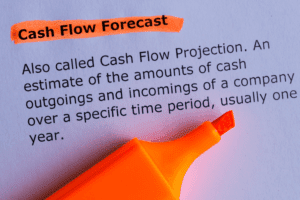Managerial Accounting Definition, Objectives & Techniques

How will she know if her suggestions for pricing are creating more shipping contracts and helping to meet the company’s goal? The main function of any good managerial accounting team is to support its company with accurate, relevant, and timely information. This information is important for ensuring decision-makers know everything they need to know to direct the company toward its goals. Managerial accountants leverage margin analysis to look at sales revenue and the cost of goods sold (COGS) side-by-side to assess profitability.
Current costs of operation and goods or services are then compared to these standard costs. An accounting period is usually set to be year-long and this could either be a regular calendar year or a fiscal year starting from a particular day. Financial accounting statements are usually run and presented at the end of this period. Financial accounting, on the other hand, only aims to present information about the historical financial data of a company.
Cost accountant managers
Marginal costing (sometimes called cost-volume-profit analysis) is the impact on the cost of a product by adding one additional unit into production. The contribution margin of a specific product is its impact on the overall profit of the company. Margin analysis flows into break-even analysis, which involves calculating the contribution margin on the sales mix to determine the unit volume at which the business’s gross sales equals total expenses.
- Financial leverage is the use of borrowed capital to increase the value of assets, investments, and return on investments.
- Financial statements are made more accurate and forecasts for future asset valuation become easier and more reliable.
- Overhead charges are determined for each product by dividing the whole expense by the number of goods or other factors like storage space.
- Planning occurs at all levels of an organization and can cover various periods of time.
- Bottlenecks cause delays in the business process of a company and can prove very costly in the end.
- Managerial accounting looks at a way to solve specific management issues while financial accounting looks at the company as a whole.
- Financial reports and data can be presented in any way, as long as the individuals intending to use them are satisfied and can use them to make decisions.
Profit margins are then estimated and monitored in accordance with company goals. A proper understanding of costs and profit margins helps a company to optimize resources for increased productivity. Appropriate financial planning helps a company to easily determine all its future needs. A company’s future operations are also easily streamlined for achieving business goals and objectives.
Budgeting, trend analysis, and forecasting
In this way, they use margin analysis to ensure “high” sales figures don’t paint a false picture of business performance. While you’re likely using accounting software in order to track your financial accounting activity accurately, you’ll probably need to use other resources such as budgeting or planning tools in managerial accounting. If you’ve always thought that managerial accounting, sometimes referred to as management which of the following is an example of managerial accounting? accounting, and financial accounting were the same type of accounting, you may be in for a surprise. Finally, managerial accounting information often takes the form of nonfinancial measures. For example, Sportswear Company might measure the percentage of defective products produced or the percentage of on-time deliveries to customers. This kind of nonfinancial information comes from the managerial accounting function.

Management can use this type of accounting to set objectives, format plans to meet them, and compare the performance of various departments. Using historical data as a reference, the management observes the current information to check the impacts of business decisions. What you can infer from financial accounting is limited to numerical results like profit and loss, but in management accounting you can discuss the cause and effect relationships behind those results.
Capital budgeting
However, it’s important to remember that routine tasks such as creating an invoice or tracking accounts receivable balances are also part of the financial accounting process. The majority of managerial accounting jobs will require at least a bachelor’s degree in a field such as finance, business, or accounting. If you enroll in a bachelor’s degree program, it’s helpful to take electives that can better prepare you for a career in managerial accounting.

Managerial accounting is the process of analyzing, interpreting, and measuring an organization’s financial processes. This type of accounting uses data to help provide leaders with insight for strategic financial planning that aligns with that organization’s goals and business objectives. In managerial accounting, the main focus will be on financial decisions that affect the internal workings of a company. For example, managerial accountants may help leaders decide whether or not to raise the cost of goods and services. The main difference between managerial accounting and financial accounting is the parties for which they provide financial information.